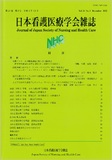Japanese
English
- 有料閲覧
- Abstract 文献概要
- 参考文献 Reference
要 旨
目的:混住地域における、年代別のSC形成及びCEの現状を明らかにしたうえで、混住地域におけるSCの高さに関連する要因を明らかにする。
方法:N地区在住1010全世帯を対象に質問紙調査を行った。
結果:有効回答の得られた475世帯を対象とした。認知的SC、構造的SCが高い者の割合は年代間で差がなく、『旧住民群』は『新住民群』と比較して認知的SC、構造的SCが有意に高かった。重回帰分析の結果、高齢者支援力は年齢とともに『新住民群』、『地域への愛着あり』、『高規範』、『社会参加数』と正の関連がみられた。ロジスティック回帰分析の結果、認知的SC、構造的SCの高さは相互に関連しており、SCの高さに関連する要因として、居住年数の長さ、健康状態のよさが抽出された。
結論:混住地域住民のSCの高さは年代では差がなく、高齢者支援力はSCと正の関連がみられた。さらに、SCの高さに関連する要因として、居住年数の長さ、健康状態のよさが挙げられた。集合団地地区に住む新住民と旧住民の交流を深めつつ、各年代で居住年数が長く、健康状態の良い住民と協働し、互助活動を強化すると、CEの高まりとともにSC醸成が促進されることが示唆された。
Purpose: This study explored the establishment of social capital (SC) and the conditions of community empowerment among middle-aged and elderly adults in order to clarify factors that affect levels of cognitive and structural SC in mixed regions with both established and recent residents.
Methods: We conducted a questionnaire survey targeting 1,010 households in N region.
Results: We analysed the results of the 475 household respondents to our survey and did not identify a difference in high-level cognitive or structural SC between the generations. However, our analysis confirmed that “the long-established residents group” showed significantly higher SC levels as compared to “the new members of the community group”. The results of our regression analysis suggest that the ability to support the elderly has a positive correlation with “age”, “being a new member of the community”, “community attachment”, “wide-range norms”, and “numbers of social participation activities”. The results of our logistic regression analysis suggest that levels of cognitive SC and structural SC are interrelated and that factors affecting SC levels include duration of residence and health condition.
Conclusion: Generational difference among residents in mixed regions does not affect levels of SC. SC are interrelated and that factors affecting SC levels include duration of residence and health condition. However, this study indicates that SC is improved and fostered when new residents of crowded housing complexes and long-established residents deepen their exchange, cooperate with people of the same generation, have long residency, are in good health and continuously enhance mutual support.
Copyright © 2022, Japan Society of Nursing and Health Care All rights reserved.


